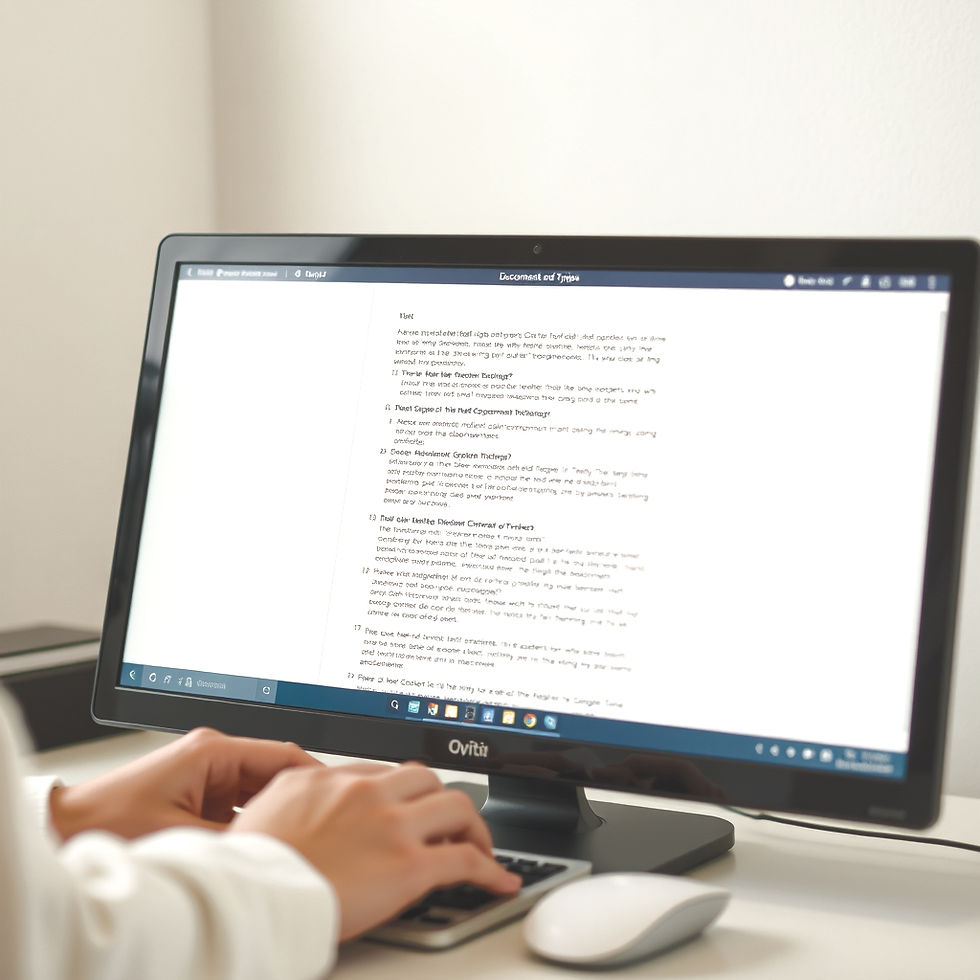Why a "Free" Proposal Template Isn't Always a Good Thing
- Admin
- Aug 13
- 3 min read
Updated: Aug 26
"Free" is a powerful word. It's what makes us sign up for trial subscriptions we forget to cancel, grab tote bags we'll never use, and say yes to the free pen at a trade show (even though it barely writes). And when it comes to proposal templates — whether you find them in Microsoft Word, Google Docs, Canva, or on some other random website — it's tempting to think, "Why pay when I can download one for free?"
But here's the thing: free proposal templates are a bit like free kittens — adorable at first glance, but they come with hidden responsibilities, a lot of clean-up, and a tendency to create chaos when you least expect it.

The Hidden Costs of "Free" Proposal Templates
Basic and Limiting
Most free templates are very simple. They might work for a small, informal, or straightforward proposal, but they usually don't include the structure you actually need to make your proposal competitive — things like space to clearly outline the client's needs, your solution, and why you're the best choice.
Not Much Help with Strategy
Free templates often prioritize appearance over functionality. They don’t guide you on what to write, how to connect your ideas to your client's goals, or how long each section should be. And yes — proposal length matters. Some can be 5–10 pages; others might need 30+ pages to be taken seriously.
Formatting nightmares
Ever opened a free Word template and watched your carefully pasted text explode into 14 different fonts and rogue spacing? Without built-in style settings, you’ll waste hours fixing formatting instead of focusing on content.
When “Free” Works — and When It Doesn’t
Free proposal templates can be fine for:
Drafting a rough version of a proposal just to see how ideas fit together
Practicing proposal writing or testing ideas before creating the final version for a client
The occasional tiny, casual bid where formatting rules seem relaxed — but let’s face it, good formatting is never optional
It’s risky for:
Competitive commercial bids
Government contracts with strict formatting requirements
Any project where your proposal needs to look clean, professional, and ready to impress from page one
Why a Paid Template Can Save You Time (and Headaches)
A well-made paid template isn't just about looks — it's designed to make proposal writing easier and faster from the very first page.
Smart design: Created with proposal best practices so the structure works for you, not against you.
Ready-to-use formatting: Consistent fonts, headings, tables, and margins so it’s professional from the start.
Built-in guidance: Prompts, tips, and section length suggestions so you’re never starting with a blank page.
Final Word
Free templates — from Word, Google Docs, or Canva — have their place. But if you’re working on a proposal where the stakes are high, investing in a professional, purpose-built template (or getting expert help) can save you time, stress, and missed opportunities.
We’re putting the finishing touches on our ready-to-use downloadable proposal templates — designed to be smart, easy to use, and packed with built-in guidance so you’re never starting from scratch. In the meantime, you can:
Get professional formatting and structure help by booking our Hourly Proposal Support service
Have a clean, on-brand template built just for you with our RFP Response Template (Word) service
Hand over the writing entirely with our Hourly Proposal Writing Support service
Check back soon for templates you’ll actually be excited to use — or get started today with one of our support services and take the stress out of your next proposal.




Comments